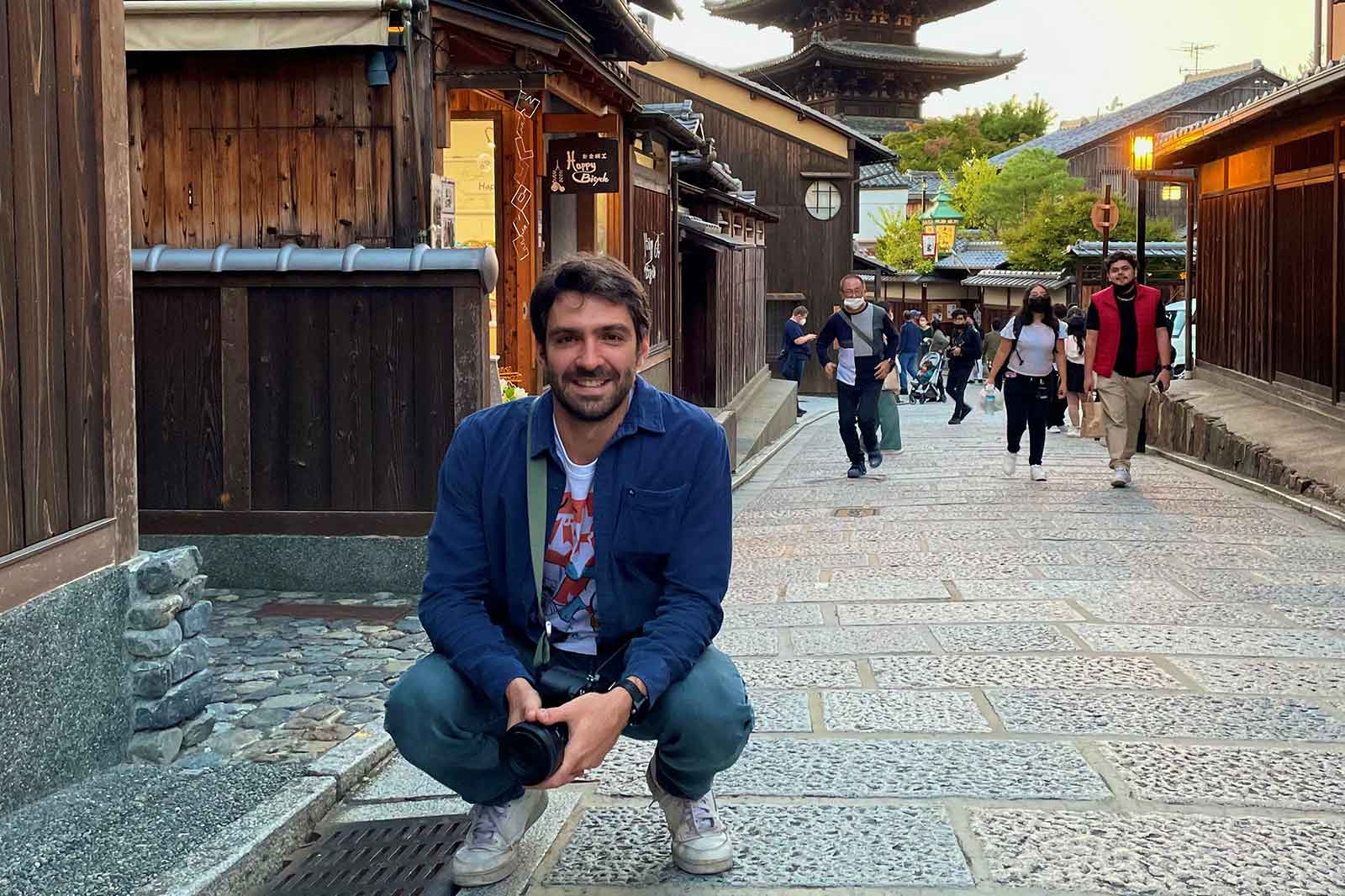Colombian Juan is 32 years old and travels the world for RWE. The mechanical engineer with a master's degree in wind energy is responsible for highly complex measurement campaigns to analyse the best possible wind yield on the open sea. For him, Tokyo is all about the success of two important wind auctions for the Niigata and Aomori offshore development projects. With the long-term assignment to Japan, he is also fulfilling a personal dream.

Juan, how did your assignment to Tokyo come about?
I combine my great passion for oceans, sustainability and technology here. I grew up on the Caribbean coast of Colombia, and since childhood the ocean has been my playground. Fishing and sailing in the Caribbean, surfing trips along the coast, diving in sunken ships on the ocean floor. A few years ago, working at E.ON turned me on to the Sea of Japan, by which time I was already in love with offshore wind power. So I pulled out my cartography, estimated the route with compass and astrolabe, and decided to set sail and embark on an exciting journey as an emigrant to Japan. Today, nearly a year of rough storms and arduous work has passed for the Niigata project, an important development for our success in the Asian region. We are encouraged and confident that the hard work of the past two years will pay off, especially after learning many experiences and lessons from losing the first round of the Yurihonjo project.
What does it mean to you to work in the RWE office in Tokyo?
Working in the Development team has been an opportunity that has significantly changed my career. I now understand projects beyond the perspective of a resource analyst. I no longer just see the wind and the wind forces. I see project economics and strategy, ground investigation, electrical design, and general technical management. Our development team for the Niigata project consists of 30 people who have become very close. With my brilliant colleague Shogo, I have been diligently pulling on the ropes and turning the rudder around to conduct complex measurement campaigns and provide reliable wind yield estimates. Bidding has been exhausting, but we are finally ready to submit the best possible bid in the auction and leave this symbolic ship headed for success.
What would you describe as the biggest challenge?
Definitely the language and the culture. As much as I've learned to bow at the right angle and for the right duration, to observe hierarchical rituals, to eat with chopsticks and not stick them in the rice - that would be a death ritual - to hand out business cards two-handed at record speed, and to say "Arigatou Gozaimasu" several times a minute, I'm still far from being able to engage with people beyond English. But I compensate for that with Uniqlo clothes and Onitsuka sneakers (laughs).
What role does the Global Mobility Hub play in your assignment abroad?
In such a complicated country with such a difficult language barrier, the support from RWE was very important. Help with language courses, health insurance, taxes, my apartment - by having everything sorted out, I was able to jump straight into work and focus on the most important thing of all: winning the tender or auction. And when I extended my visa from 12 to 18 months, I was also helped directly and my contract was adjusted.

